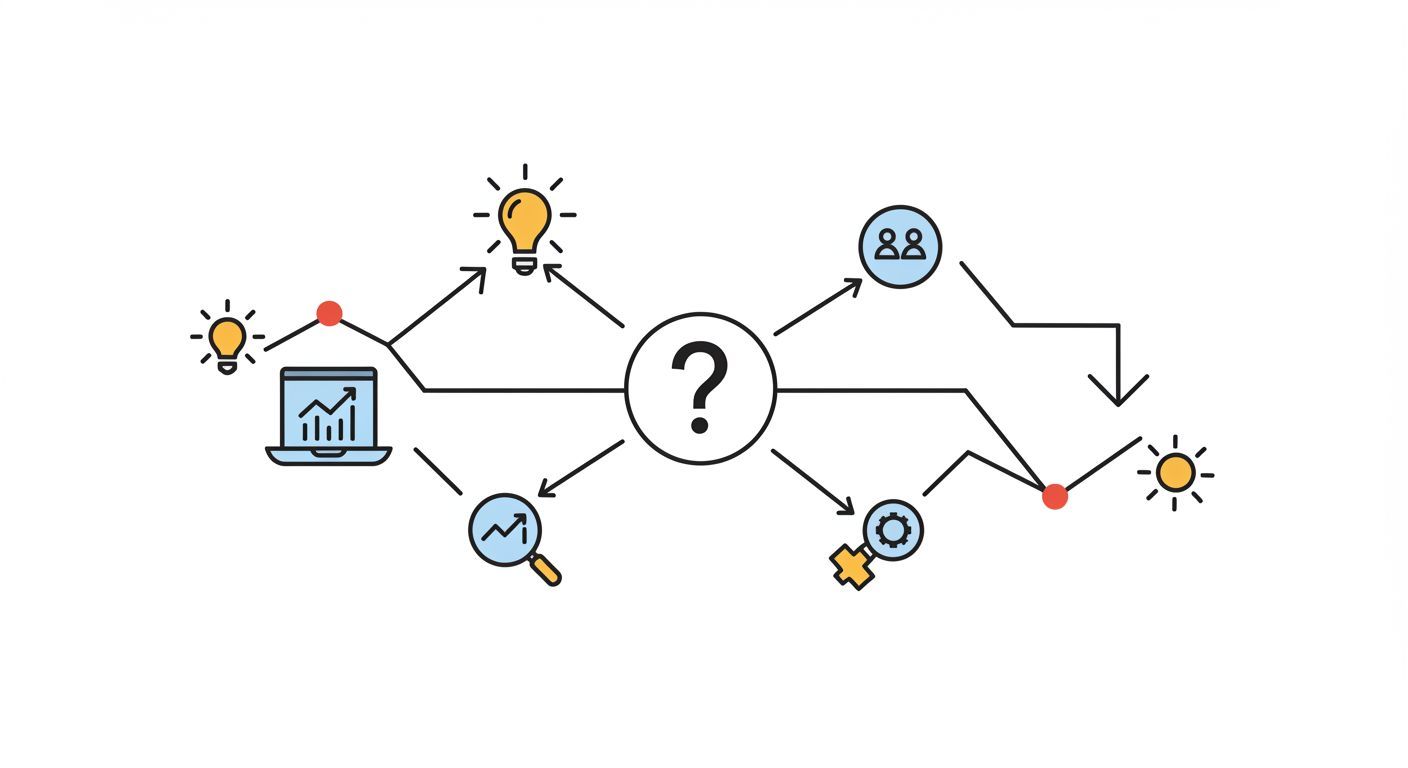10 Actionable Steps to Improving Differentiation
Differentiation is the crucial component that answers one simple question for your customers: "Why should I choose you over everyone else?". Failing to answer this question can be catastrophic; you risk spending your time and money educating potential customers, only to have them buy from a competitor who stands out more.

Differentiation isn't about being "family-owned" or offering "great customer service"—these are common and expected. True differentiation is about carving out a unique space in the market that makes your business the only logical choice for your ideal customer. It's the "heat" in the fire triangle analogy that, when combined with your Foundation (fuel) and Awareness (oxygen), ignites Action.
Here are 10 actionable steps you can take to improve your differentiation.
1. Niche Down: Be a Big Fish in a Small Pond
Instead of trying to serve everyone, focus on a very specific market segment and serve them exceptionally well. By narrowing your focus, you are no longer competing with every generalist; you become the go-to expert for a specific audience with a high need.
- Example: A generic bakery competes with every coffee shop and grocery store. A bakery that positions itself as "Houston's premier provider of custom, allergy-friendly celebration cakes" has created a defensible niche.
2. Specialize in a Unique Product or Method
Being the undisputed expert in one specific thing is a powerful differentiator. This sharp focus instantly builds credibility and trust with your target audience because they feel more confident hiring a specialist than a generalist.
- Example: A digital marketing agency offering a wide range of services is a jack-of-all-trades. An agency that markets itself exclusively as "The SEO Agency for E-commerce Stores on Shopify" becomes an instant authority for that audience.
3. Create an Unforgettable Customer Experience
Use your agility as a small business to create a customer experience that is deeply personal and memorable. This "unboxing experience" creates an emotional connection, making customers feel valued and far more likely to share their experience.
- Example: An online store selling leather goods can ship its product in a standard box. A differentiated store ships it in a beautifully branded box with a handwritten thank-you note from the artisan and a free tin of leather conditioner.
4. Develop a Memorable Brand Voice
Your brand's personality can be a huge differentiator. Move beyond generic corporate-speak and develop a unique voice—be it witty, humorous, deeply empathetic, or educational—that resonates with your audience and builds a community.
- Example: A pet grooming service could post simple "before and after" photos. A differentiated groomer develops a humorous voice, writing captions from the pet's perspective, engaging with comments, and sharing funny memes that entertain their audience.
5. Lead With Your Values
Modern consumers increasingly make purchasing decisions based on a company's values. Being transparent and leading with your ethical practices can be a powerful way to connect with a specific audience that shares those values.
- Example: Instead of just selling coffee, a company can differentiate itself through "bean-to-cup transparency". They can feature the farmers they partner with, detail their fair-trade practices, use compostable packaging, and donate a portion of their profits to charity.
6. Offer a Differentiated Guarantee
A strong guarantee can overcome customer hesitation and immediately set you apart from competitors who are unwilling to offer the same level of assurance. This reinforces your value and builds trust right at the point of decision.
- Example: A roofer can compel action by reminding a customer what makes them different: "Get a Quote from the Only Roofer in Town with a Lifetime Workmanship Guarantee".
7. Build a System for Showcasing Testimonials
Actively collecting and displaying customer testimonials and reviews is a key differentiator. It provides social proof and builds trust in a way that your own marketing messages cannot. Make it a core part of your process to ask for, gather, and showcase positive feedback prominently on your website.
8. Prove Your Expertise with Case Studies
Go beyond simply stating what you do; show potential customers the results you've achieved. A well-documented case study or a portfolio of your work demonstrates your expertise and allows customers to visualize the success you can bring them, making you a less risky and more attractive choice.
9. Create Unique, Authoritative Content
Establish yourself as an authority in your industry by creating unique and original content that your competitors aren't. This could be an in-depth industry report, a valuable free tool, or a video series that solves a common problem. This positions you as a leader and a valuable resource, not just another vendor.
10. Offer a Differentiated Action
Instead of a generic "Contact Us" form, provide a more valuable next step that your competitors are not offering. This makes the Action itself a unique and compelling offer that can attract high-quality leads.
- Example: You could offer a "Free 15-Minute Strategy Session," a "Personalized Demo," or an "Exclusive Industry Report".
By focusing on these strategies, you can transform your business from just another option into the only option for your target customers.








